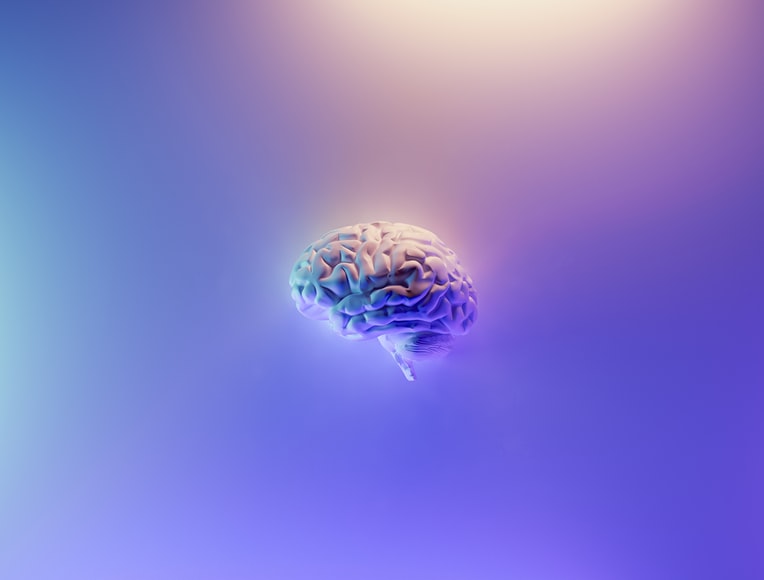When you think of magnesium your mind might go straight to twitching muscles, workout recovery and calming nerves. And yes, this magical mineral plays a vital role in muscle movement and relaxation. However, studies are really showing the brain power of magnesium in regards to anxiety and depression.
It seems, magnesium can be highly beneficial for neurological and psychiatric diseases such as stress, anxiety and depression. It plays a very important role in modulating brain biochemistry and influences several neurotransmission pathways. Deficiencies of this vital mineral can lead to personality changes, including apathy, depression, agitation, confusion, anxiety, and delirium.
A population study in conducted in Australia, linked high dietary magnesium intake with a significant reduction in the risk of cognitive impairment. There are also many other studies demonstrating an increased risk for mood disorders with when intake is low.
Another study of importance showed that supplementing with magnesium for 12 weeks led to a significant decrease in depression and anxiety scores regardless of age, sex or degree of depression or intake of anti-depressants.

Some of the clinical study outcomes confirming anti-depressant activity of magnesium:
- mood stabilisation in bipolar diorders
- depressive symptoms in women with premenstrual syndrome
- depressive symptoms in chronic fatigue syndrome
- depressive/anxiety states that accompany epilepsy
- depressive states and paresthesia that accompany Gitelman’s syndrome
- major depression
- in elderly depressives with hypomagnesaemia and type 2 diabetes
- depression and premenstrual dysphoric disorder
Cognitive function
Research has been able to clearly identify the reason why magnesium plays such a significant role in cognitive function.
It is critical in the prevention of diabetes and hypertension and these are both proven risk factors for cognitive impairment. The antioxidant properties of magnesium also have the capacity to reduce oxidative stress and inflammatory markers which both have a major impact on brain aging and cognitive decline.
There is considerable accumulating evidence to suggest that alterations to some brain functions in both normal and pathological conditions have and association to fluctuation in local magnesium concentration.
Magnesium is a co-factor for many enzymes that reside in the nervous system, which is why the brain and the nervous system require sufficient levels of the mineral to function. And due to it’s involvement in many biochemical processes, it can have various effects on intellectual and neuronal functions.
Some of these processes are:
- Blocking certain receptor channels which reduces excitatory amino acids
- Increase in important brain neurotrophic factors such as brain derived neurotrophic factor which is often reduced in depression
- Plays a role in modulating serotonin, prolactin, dopamine, adrenaline and noradrenaline, GABBA, melatonin and cortisol.
- Positive effects on the fluidity, stability, synapses and transmission of cells.
- Anti-inflammatory effects by influencing that neuropeptides that may cause neurogenic inflammation.
The critical nutrient
The life of every cell is dependent on magnesium and is fundamental to life. There may be hereditary and dietary causes of deficiency, however there are many other factors that might contribute to low magnesium:
- Gastrointestinal disorders
- Renal loss
- Endocrine disorders
- Use of various drugs such as diuretics or proton-pump inhibitors.
Unfortunately in 70% of the western world, dietary intake of this essential mineral is lower than the recommended 400mg per day. This is why supplementation is often advisable. There are many commonly prescribed supplements; however the organic forms found naturally in the body such as magnesium citrate have been show to be superior to inorganic magnesium salts, such as magnesium oxide.
When looking for supplements, water soluble provides enhanced absorption and utilisation. Studies show that magnesium citrate has superior solubility and therefore higher absorption that magnesium oxide.
In summary, there is a significant amount of information supporting the positive influence magnesium has on our mood, cognitive function and neurotransmission.
For any advice or guidance on how to support your body through detoxing, book in for a personalised consult with our Naturopath Candace Borg to help you on your way to better health and happiness .
Medical Disclaimer: This information is not intended to be medical advice or to be a substitute for professional expertise or treatment. If you have any medical concerns, please consult with your health care provider or seek other professional medical treatment.

